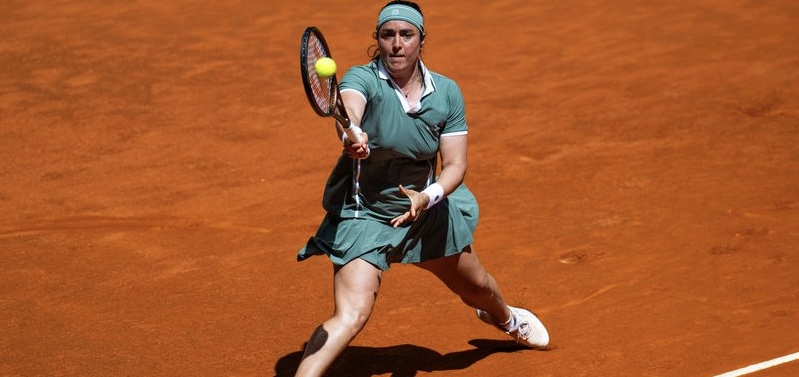Ons Jabeur
appears at ease as she steps out of the player lounge at the Internazionali BNL d’Italia. She’s just finished a phone call with El Seed, the French-Tunisian artist whose work includes sculptures in Dubai, murals in London — and Jabeur’s personal logo. But despite the laid-back moment, Jabeur acknowledges she’s facing a “difficult moment” in her career.
A shoulder injury in August forced her to shut down her 2024 season. Just three months into her return this year, Jabeur, 30, hobbled off court in Miami in tears after suffering a leg strain against Jasmine Paolini
. Her first match following that was an opening-round loss to Moyuka Uchijima
in Madrid two weeks ago.
But that’s not what’s weighing heaviest on Jabeur’s heart. Two weeks ago, the UN World Food Programme — for which she has been a goodwill ambassador since February 2024 — announced that it had run out of food in Gaza as a result of Israel’s blockade on aid entering the enclave, a situation that now threatens catastrophic levels of malnutrition and disease. Once a critical source of food for Gaza’s residents, the WFP has been unable to deliver supplies for more than two months, cut off entirely by closed borders.
They’re doing an amazing job,” Jabeur said in Rome. “They’re trying to push and push, but unfortunately when you close the border and try to starve kids and a lot of other people to death, that’s very inhuman. We are in 2025 and I can’t believe this is happening.”
When Jabeur first saw images of hunger and suffering from Gaza on the news and her social media feed, she felt “very limited” in terms of her ability to help. Her work with the WFP has turned that feeling into action and given her a valuable perspective on the world outside the quiet luxury of the Foro Italico’s player lounge. During a trip to Egypt last year, Jabeur met a woman whose bakery project was being supported by the agency.
“It was amazing to see a woman fighting like that,” she said. “For me it was an inspiring story. You have no idea for how little they have, how generous they are. She kept giving me her cake and what she was making. I said, ‘No, no, you need it.'”
Despite those moments of uplift, there’s no escaping the ongoing bleakness. Jabeur says that she frequently cries after her meetings with the World Food Programme, and her eyes fill with tears again as she explains.
“One of the guys [in Palestine] was asking, ‘Are we human?'” she said. “To even ask that question means you are living in hell. I know the WFP are pushing to get food there even though a lot of workers got killed. They’re doing voluntary work. It’s a terrible world right now, and I don’t know how people are thinking.”
